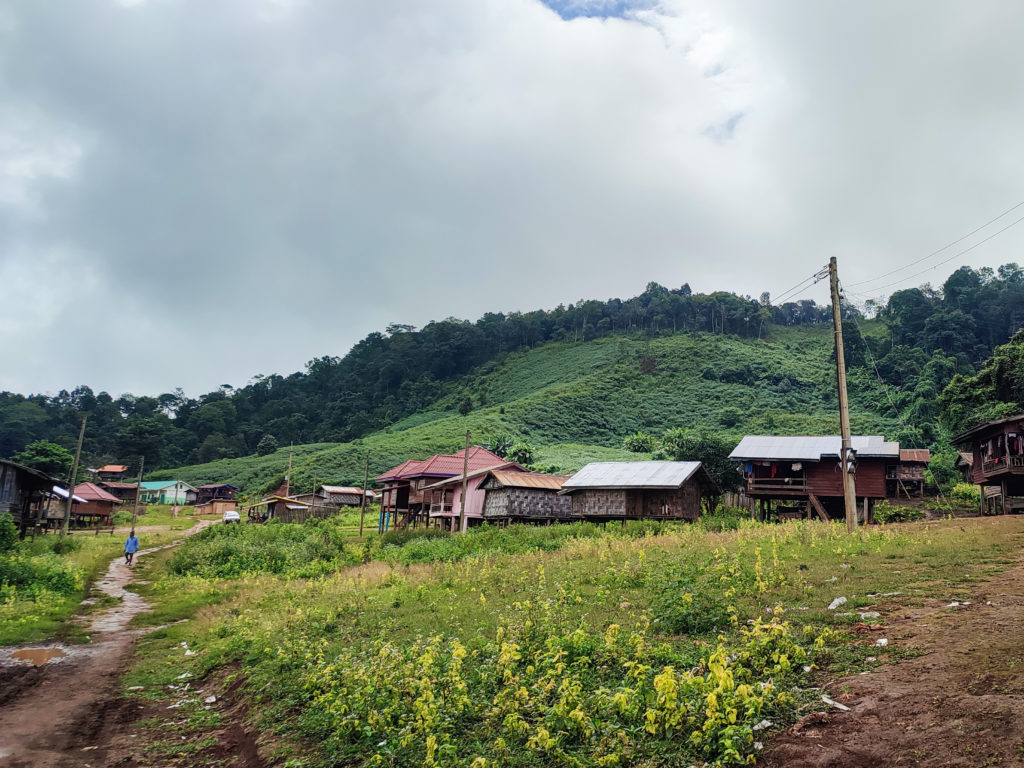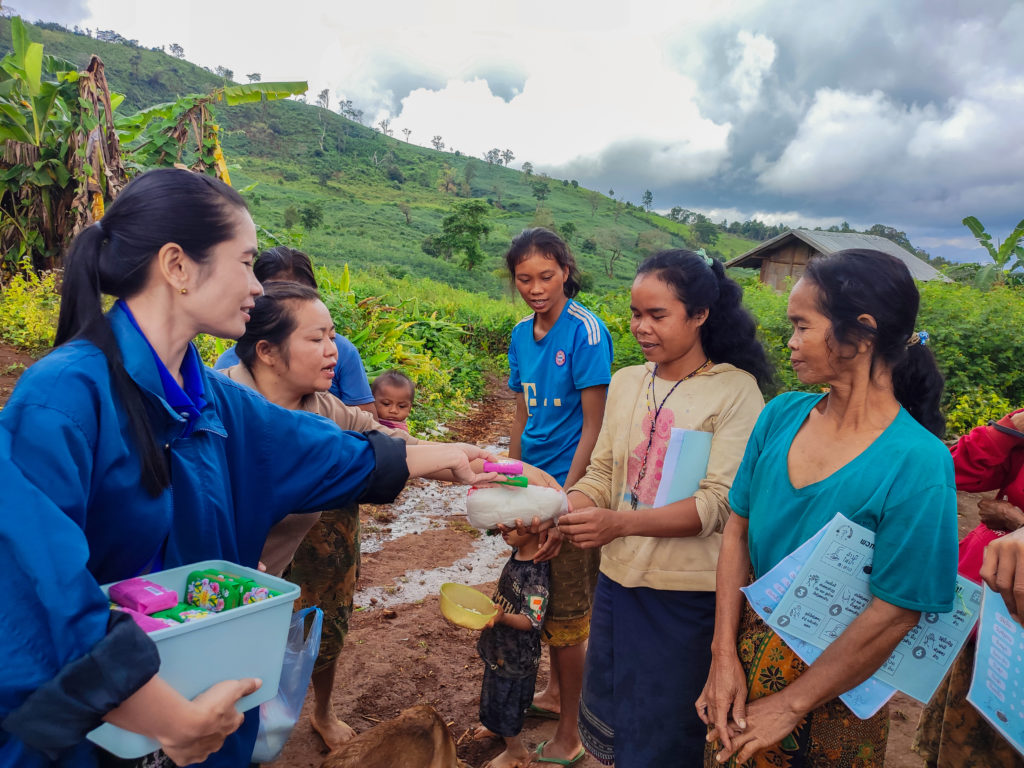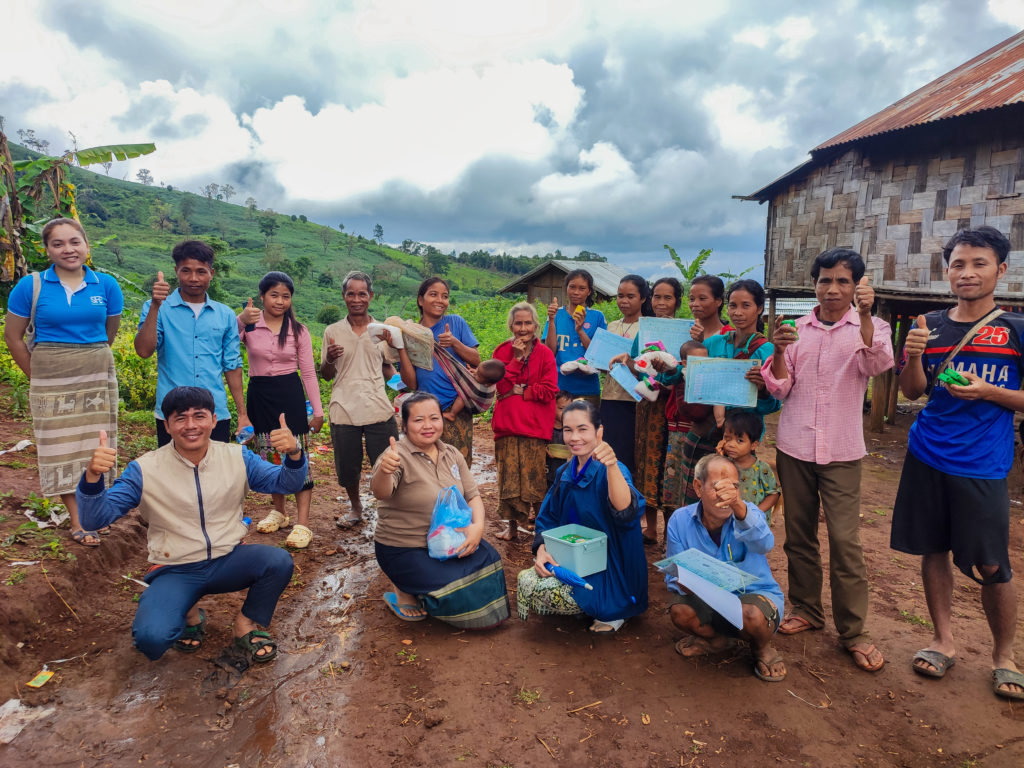Does training make a difference?
Dive into the story of Anne Solbach, an expat in Laos and staff member at the hospital project in Sekong.
It is still early in the morning when we leave the Sékong office to visit one of our partner villages. As we head deeper into the mountains, the roads become less passable. The rain over the past few days has taken its toll, but our driver is doing his best to avoid the potholes. Today, our team consists of two trainers from the Lamam district Health Office, the SFE community facilitator, and an expat nurse.
After a two-hours drive, we reach a small village of about 30 bamboo houses nestled in a lush forest. The view of the mountains and valleys is magnificent. Our arrival is quickly noticed. The villagers watch us from afar while we unload the equipment. Training can begin. We call the villagers who come with the handwashing calender they received during the first training. They show us how they wash their hands with a bucket of water and soap.

Some remember the seven steps of hand washing they were taught during our previous visit. Others did not participate and are discovering these gestures for the first time. “After washing your hands, you dry them on your pants and skirts, right? ” says one of the trainers. “No, no! ” the villagers reply, laughing. They have learned not to dry their hands on their own clothes.
The group grows as more curious villagers join us, and the training continues in small groups. We all move into the shade of a large bamboo house on stilts. We are joined by the three families who live in the house. This time, the chief of the village himself leads the training. We watch the group as they seem to get into the game, showing these families the steps of hand washing. After each training session, the participants receive a bar of soap and a pack of salt for their family.
It’s already afternoon. It is time to leave the village to return safely to Sekong before it gets dark.
In total, 48 adults from this village were trained – 24 women and 24 men. Not counting the children and the people around us who watched the training and hopefully learned a lot too. We will be returning to this village in a few weeks to keep on training and raising awareness, but also to evaluate our own training methods.
Indeed, our recurring challenge is to see the transition from theory to practice and to long-term behaviour change. Despite the villagers’ motivation, it is sometimes difficult to implement certain habits.
In order to evaluate these changes among the beneficiaries of our projects, we have established the RANAS method: Risks, Attitudes, Norms, Abilities, Self-regulation. As part of this project, we decided to focus on two behaviors in the villages: handwashing before eating and women going to health facilities for antenatal care.
First, the project collected information from several villages in Sekong province in early 2023. Using this information, the team developed specific activities to be carried out with villagers on these two behaviours.


First, the project collected information from several villages in Sekong province in early 2023. Using this information, the team developed specific activities to be carried out with villagers on these two behaviours.
In July, a team was formed to learn these specific activities: trainers from the Lamam District Health Office, village health volunteers, and women’s association representatives from four partner villages. These new trainers then went to the partner villages to implement the activities and monitor the villagers between August and October. At the end of the year, a third visit will be made to the villages to collect final data.
It is by implementing such working, monitoring and evaluation methods, and by being in a process of continuous improvement, that we ensure that our projects have a positive and lasting impact.
Article by Anne Solbach
Sekong Hospital Project
Articles similaires

#17.04.2025
Breaking taboos, Building trust

#11.07.2023
Clean water for Grandma Kun and her family

